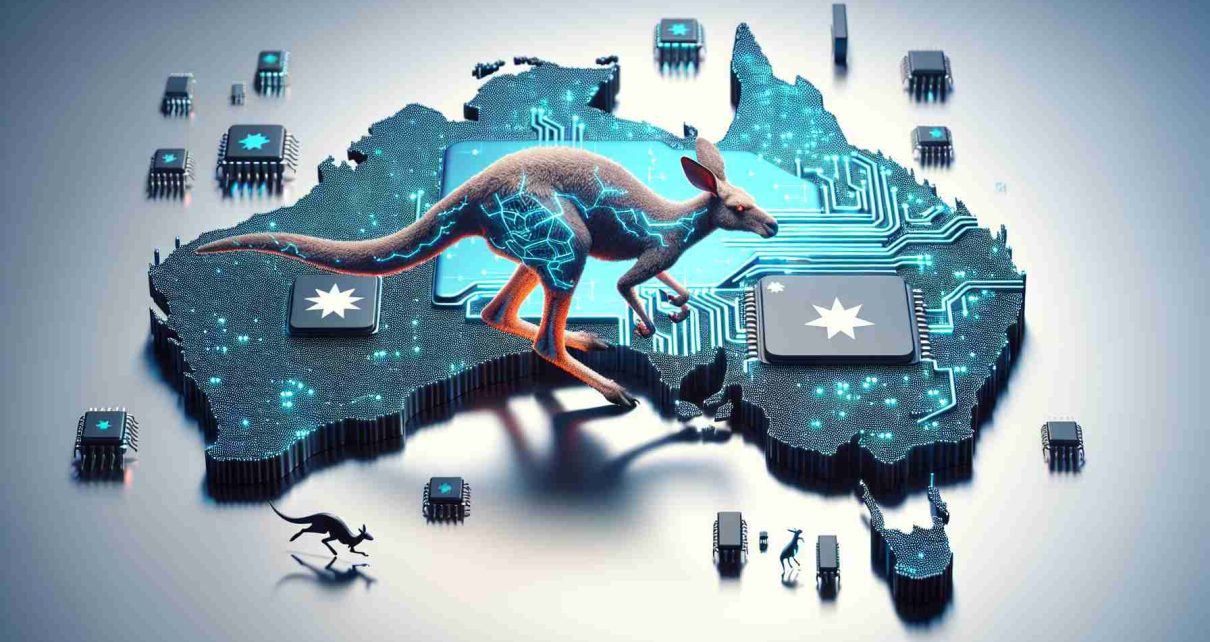AI Adoption Surges in Australia
A recent global study conducted by Google revealed a remarkable trend among Australians. Nearly 50% of the 1,000 participants embraced artificial intelligence tools in 2024, marking a significant 13% rise compared to the previous year. Surprisingly, Australia has outstripped major tech hubs like the United States, where only 29% engage with AI, and Europe, which sees 42% usage.
The findings further indicated that about three-quarters of Australians utilize AI to enhance their writing, brainstorm ideas, tackle problem-solving tasks, and digest complicated information. More than half of those surveyed expressed that AI has provided substantial benefits, with 47% believing it improves business operations.
In the workplace, Australians increasingly rely on AI. However, this enthusiasm comes with caution. A notable 53% of respondents voiced concerns regarding AI’s impact on society and the economy, which is 10% higher than the global average.
This study aligns with predictions from the Australian Technology Council, which anticipates that AI will dominate technology trends by 2025. Damian Kassabgi, CEO of the Council, stated that Australian businesses are expected to harness AI more effectively to boost productivity.
Nevertheless, as companies integrate these advanced technologies, they must remain vigilant about potential risks associated with them, especially after the introduction of AI safety standards in September 2024.
Implications of AI Adoption in Australia
The surge in artificial intelligence (AI) adoption in Australia signals profound socioeconomic shifts that extend beyond individual user experience. As nearly half of the population engages with AI tools, the broader cultural landscape is evolving. This trend fosters a growing sense of digital literacy, enabling greater creativity and efficiency in everyday tasks. The reliance on AI for writing, problem-solving, and information processing reflects a cultural pivot toward innovation, shaping a society increasingly comfortable with technology’s intricacies.
In terms of economic impact, the integration of AI is expected to enhance productivity significantly, potentially transforming traditional sectors such as manufacturing and services. A more efficient workforce—augmented by AI—could position Australia as a global player in tech-driven markets, attracting foreign investments and spurring local startups. However, with 53% of Australians expressing concerns about AI’s repercussions on society and the economy, there exists a pressing need for a framework that addresses ethical considerations and job displacement.
Looking toward the future, the environmental implications of AI adoption are not to be overlooked. The technology has the potential to optimize resource management, minimizing waste and energy consumption across various industries. Nevertheless, as AI deployment increases, its carbon footprint could rise, necessitating a balance between technological advancement and sustainable practices.
As we navigate these changes, the long-term significance of AI adoption in Australia will depend on the proactive measures taken to harness its benefits while mitigating inherent risks. Identifying strategies to integrate AI responsibly will not only influence national prosperity but also set a precedent for global AI governance.
AI Adoption in Australia: A New Era of Innovation and Cautious Optimism
The Surge of AI in Australia
A recent global study by Google has uncovered a significant trend in the adoption of artificial intelligence (AI) among Australians, with nearly 50% of surveyed participants utilizing AI tools as of 2024. This represents a substantial 13% increase from the previous year, indicating a rapid embrace of technology that surpasses several global tech centers. In contrast, in the United States, only 29% of individuals are engaging with AI, while Europe stands at 42%.
Key Insights on AI Usage
The study highlights several compelling insights into AI usage in Australia:
– Improvement in Productivity: Approximately 75% of Australians reported using AI to enhance their writing, brainstorm, solve problems, and comprehend complex information. This reflects a growing reliance on AI as a tool for increased efficiency and creativity.
– Business Impact: Over half of the participants believe that AI significantly benefits their business operations, with 47% recognizing improvements in efficiency and decision-making processes.
– Workplace Integration: The workplace has seen an infusion of AI technologies, reshaping workflows and processes, adding to productivity, and driving innovation.
Cautious Optimism and Concerns
Despite the enthusiasm surrounding AI adoption, there are notable concerns among Australians regarding the implications of such technology. A significant 53% of respondents expressed worries about AI’s potential impact on society and the economy, which exceeds the global average by 10%. This skepticism points to a need for responsible AI integration, ensuring that advancements do not come at the expense of societal well-being.
Future Predictions and Trends
The Australian Technology Council predicts that by 2025, AI will be at the forefront of technology trends, driving substantial changes in various sectors. CEO Damian Kassabgi emphasizes that Australian businesses are poised to leverage AI more effectively to enhance productivity and innovation.
Safety Standards and Regulations
With the rapid integration of AI into business practices, the introduction of AI safety standards in September 2024 will play a crucial role in mitigating risks associated with these technologies. Organizations must remain vigilant regarding ethical considerations, data privacy, and the societal implications of AI.
Pros and Cons of AI Adoption
Pros:
– Enhanced productivity and efficiency in various tasks.
– Improved decision-making and problem-solving capabilities.
– Opportunities for innovation in business operations.
Cons:
– Concerns about job displacement and economic impact.
– Ethical dilemmas and challenges in ensuring responsible AI use.
– Potential risks related to data privacy and security.
Conclusion
As Australia dives deeper into the world of artificial intelligence, balancing innovation with caution is crucial. The ongoing evaluation of AI’s societal impact and the integration of robust safety standards will be vital in molding a future where technology serves humanity without compromising its foundations.
For additional insights into AI trends and innovations, visit the Australian Technology Council.



